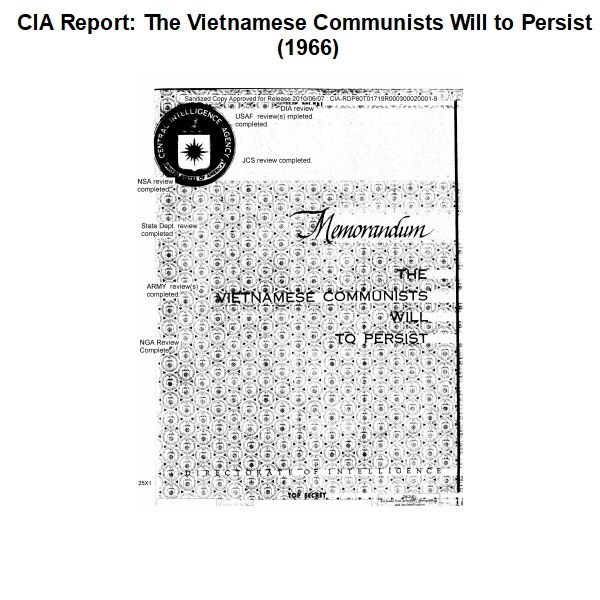
Vietnam War: CIA Report: The Vietnamese Communists Will to Persist (1966)
$19.50
Vietnam War: CIA Report: The Vietnamese Communists Will to Persist (1966)
Description
CIA Analysis: Vietnamese Communist Resolve During the Vietnam War
Timeline of Main Events (Based on the Provided Source)
- August 26, 1966: The Central Intelligence Agency’s Directorate of Intelligence produces a report titled “The Vietnamese Communists Will to Persist.” This report analyzes the strengths, capabilities, and determination of the Vietnamese communists in the ongoing war.
- During the Vietnam War (Specific dates not provided in this source): CIA analysts held skeptical views regarding official optimistic pronouncements about the progress of the war. They consistently maintained a fairly pessimistic outlook, disagreeing with the idea of “light at the end of the tunnel.”
- During the Vietnam War (Specific dates not provided in this source): CIA analysts widely understood that the Vietnamese communists viewed the conflict as a long-term struggle and were prepared to endure significant hardship to achieve their goals.
- 2006: A declassified version of the 1966 CIA report, “The Vietnamese Communists Will to Persist,” is released to the public. This version contains significantly fewer redactions than a later release.
- 2007: An article titled “Unpopular Pessimism: Why CIA Analysts Were So Doubtful About Vietnam” by Harold P. Ford, a former CIA official, is published in the CIA’s internal secret journal, “Studies in Intelligence.” The article discusses the contrarian and pessimistic views held by CIA analysts during the Vietnam War.
- December 22, 2016: A sanitized version of the 1966 CIA report, “The Vietnamese Communists Will to Persist,” is released to the public. This release required approval from multiple US government agencies, and it contains more redactions compared to the 2006 release.
Cast of Characters
- CIA Analysts: A collective group of intelligence professionals within the Central Intelligence Agency who, throughout the Vietnam War, held consistently pessimistic views regarding the likelihood of a US victory or a swift end to the conflict. They understood the long-term perspective and resilience of the Vietnamese communists.
- Harold P. Ford: A former official within the Central Intelligence Agency. In 2007, he authored the article “Unpopular Pessimism: Why CIA Analysts Were So Doubtful About Vietnam,” published in the CIA’s internal journal “Studies in Intelligence.” His article highlights the skeptical and often dissenting opinions of CIA analysts concerning the Vietnam War.
- Vietnamese Communists: The collective term referring to the political and military forces in Vietnam (primarily North Vietnam and the Viet Cong in South Vietnam) who were engaged in a protracted conflict against South Vietnam and its allies, including the United States. The 1966 CIA report specifically analyzes their strengths, capabilities, and determination to continue the struggle.
Vietnam War: CIA Report: The Vietnamese Communists Will to Persist (1966)
This 316-page CIA report was not available to the public in its current sanitized form until December 22, 2016. It had to be approved for release by the CIA, Defense intelligence Agency, United States Air Force, Joints Chiefs of Staff, National Security Agency, State Department, U.S. Army and the National Geospatial-Intelligence Agency.
This report was previously declassified then released in 2006. The earlier released copy contains significantly fewer redactions. We have included both copies in this collection so you can compare the different released versions, so you can see what in 2006 the CIA believed could be release to the public, but 10 years later decided that the public should not see.
The report provides an analysis of the Vietnamese communists’ strengths, capabilities, and will to persist, dated August 26, 1966, produced by the Directorate of Intelligence of the Central Intelligence Agency.
The report found that Unite States bombing campaigns at the current level, “…is unlikely to diminish North Vietnam’s continued ability to provide materiel support.” Though U.S. military strikes were hurting the Viet Cong, “neither internal resource shortages nor allied actions within present political parameters are likely to render the Vietnamese Communists incapable of persisting.” The report found that the North’s morale had declined, “but not to a point presently sufficient to force any major revision in basic Communist strategy.”
In 2007 an article titled, “Unpopular Pessimism: Why CIA Analysts Were So Doubtful About Vietnam,” by Harold P. Ford, a former CIA official, appeared in the CIA’s internal secret journal, “Studies in Intelligence.” Ford wrote about contrarian opinions at the Agency during the Vietnam War saying, “It is well documented and well known that for decades CIA analysts were skeptical of official pronouncements about the Vietnam war and consistently fairly pessimistic about the outlook for ‘light at the end of the tunnel.’ ” Ford continued, “CIA analysts widely appreciated the fact that the enemy saw its battle as a long-range conflict and was prepared to go the distance.”
Also included with this report is a copy of the article “Unpopular Pessimism Why CIA Analysts Were So Doubtful About Vietnam,” by Harold P. Ford.
Page 9 from 2016 Release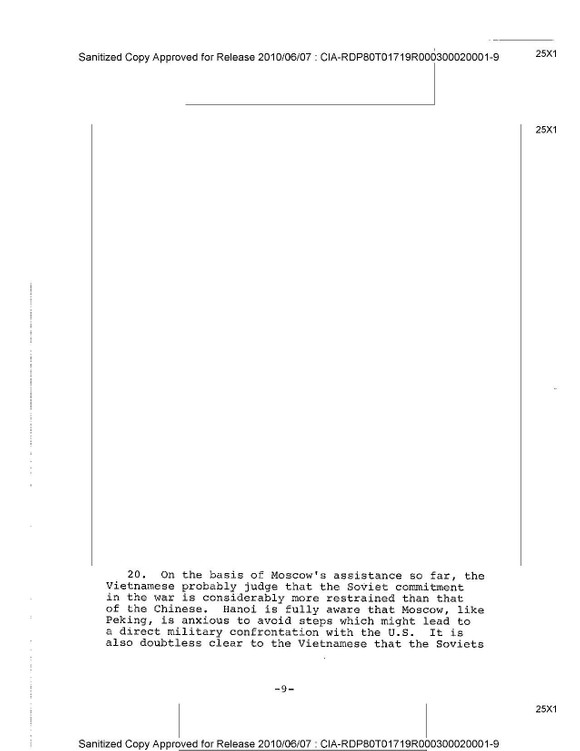
Same page, page 9 from 2006 Release
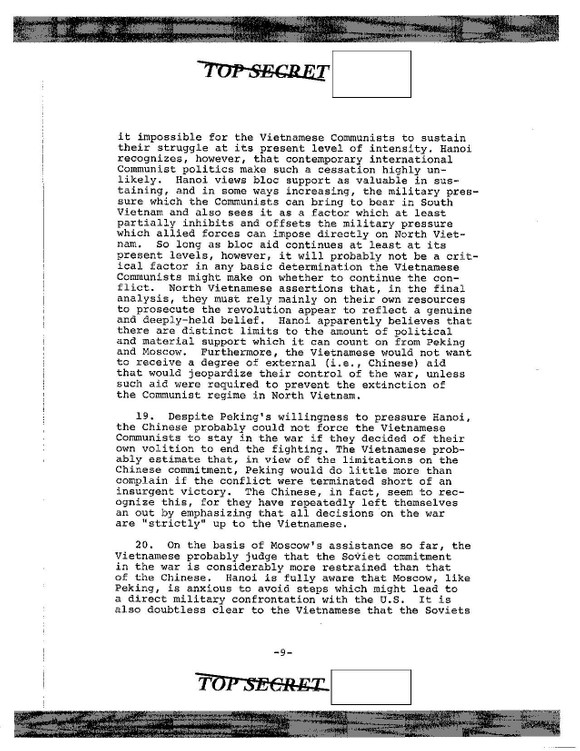
Related products
-
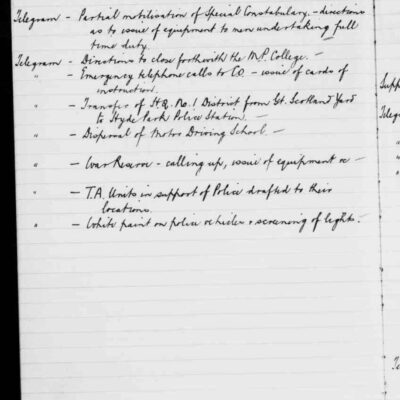
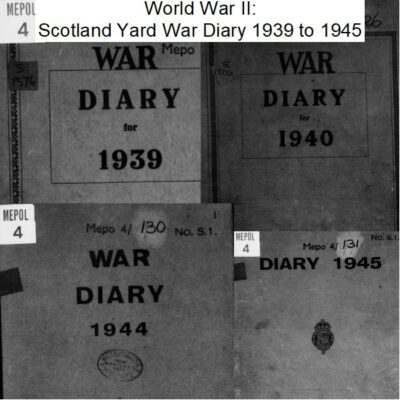
World War II: Scotland Yard War Diary from 1939 to 1945
$3.94 Add to Cart -
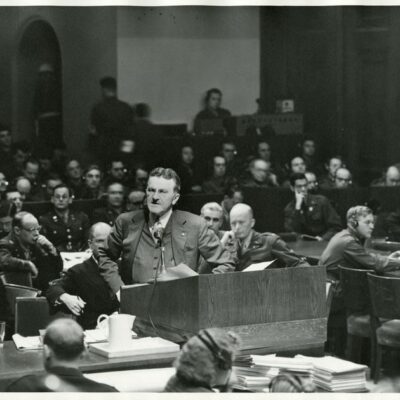
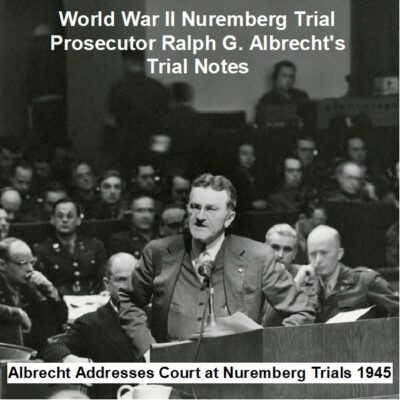
Trial Notes of Ralph G. Albrecht, Prosecutor at the Nuremberg Trials of World War II
$3.94 Add to Cart -
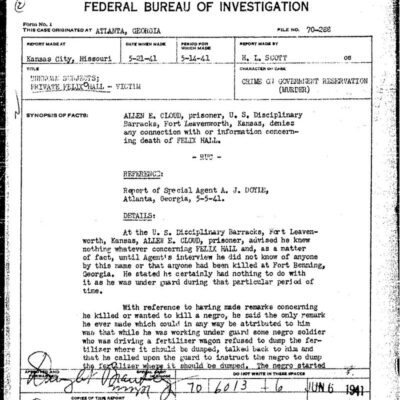
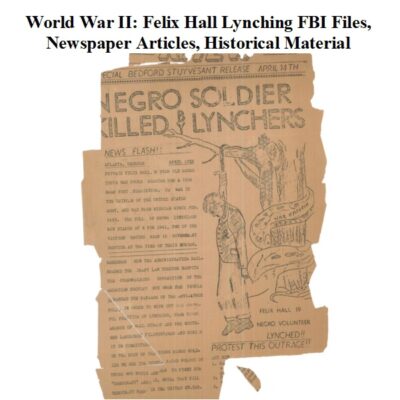
World War II: Felix Hall Lynching – FBI Files, Articles, Historical Records
$9.99 Add to Cart -
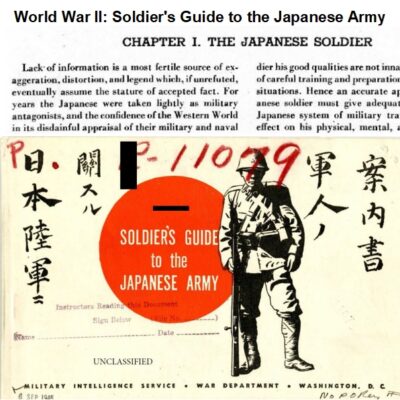

World War II: A Soldier’s Handbook on the Japanese Army
$3.94 Add to Cart